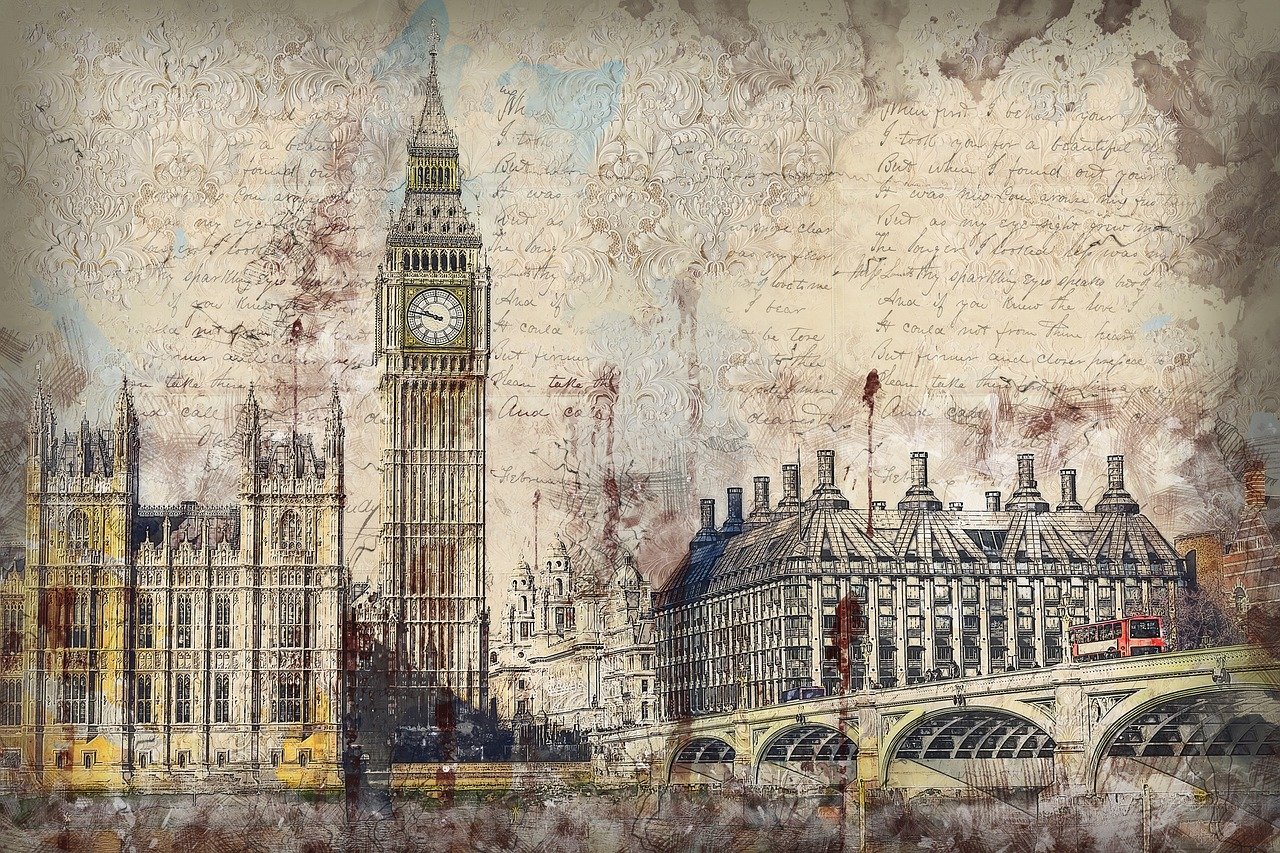The Profumo Affair, a scandal that erupted in the early 1960s, remains one of the most infamous events in British political history. At the heart of this scandal was John Profumo, the Secretary of State for War in Harold Macmillan’s Conservative government, and his illicit affair with Christine Keeler, a young model. However, the scandal’s gravity was magnified manifold due to Keeler’s simultaneous involvement with Yevgeny Ivanov, a Soviet naval attaché, at the height of the Cold War. This connection brought a dangerous mix of sex, espionage, and politics to the forefront, sparking a national outcry.
Underlying Political Tensions
The early 1960s were a time of heightened Cold War anxieties, and Britain, as a pivotal Western ally, was deeply entrenched in espionage countermeasures against the Soviet Union. The revelation that a senior government minister had a connection, however indirect, to a Soviet official, stirred fears of national security breaches. This context is crucial in understanding why the Profumo Affair escalated from a tabloid sensation to a matter of national concern.
Public Perception and the Role of Media
The role of the media in shaping public perception of the scandal is significant. Before the 1960s, British press tended to be more conservative in reporting personal lives of politicians. However, in the Profumo Affair, the media broke traditional boundaries, bringing private indiscretions into public debate. This shift in reporting not only fueled the scandal but also signaled a changing approach in British journalism towards political figures.
Impact on British Politics
The Profumo Affair was more than a personal transgression; it was a pivotal event that led to substantial changes in British politics. This scandal precipitated a chain reaction, affecting public trust in government, altering media practices, and contributing to a broader cultural and political shift in the United Kingdom. The aim of this blog is to explore these transformative impacts, examining how a personal scandal had the power to reshape the political landscape of a nation.
The Profumo Affair – A Brief History
Early Beginnings
John Profumo was a prominent figure in British politics, serving as the Secretary of State for War. He was a respected member of the Conservative Party and held a significant position in the government.
Christine Keeler was a young model who became entangled in the political and social elite of London. Her connections extended to influential figures, including Profumo and, notably, a Soviet diplomat, Yevgeny Ivanov.
The Scandal Erupts
Profumo met Keeler in 1961 at a party at Cliveden House, owned by Lord Astor. This meeting set the stage for their subsequent affair. The critical point that propelled the affair into a national scandal was Keeler’s involvement with both Profumo and Ivanov, raising concerns about potential security risks during the tense period of the Cold War.
Public Exposure and Government Turmoil
When rumors of the affair began to surface, Profumo vehemently denied any wrongdoing in a statement to the House of Commons in March 1963. This denial would later prove to be a critical misstep. The affair became public knowledge, leading to widespread media coverage and public scrutiny. The juxtaposition of sex, politics, and potential security breaches captured the nation’s attention.
Under increasing pressure and evidence, Profumo eventually confessed to the affair and resigned from his position in June 1963. This resignation marked a significant moment in the scandal, as it confirmed the allegations and raised serious questions about the integrity of government officials. The aftermath of the affair was marked by a public inquiry led by Lord Denning. The inquiry aimed to investigate the extent of the security risks posed by the affair and the conduct of government officials.
The scandal had a profound impact on Harold Macmillan’s government and the broader Conservative Party. It contributed to a loss of public trust in the government and played a part in the Conservative Party’s defeat in the subsequent general election. Beyond politics, the Profumo Affair had significant cultural implications. It symbolized the changing social mores of the 1960s, challenging the existing attitudes towards sexuality and personal freedom.
Immediate Political Repercussions
Profumo’s Resignation and Immediate Government Crisis
John Profumo’s resignation in June 1963 sent shockwaves through the British government. The admission of his affair, after a previous denial, not only tarnished his reputation but also cast a shadow over the entire government led by Prime Minister Harold Macmillan. The scandal significantly dented the image of the Conservative Party. Seen as a symbol of the party’s moral and ethical decay, it contributed to a perception of incompetence and cover-up among the party’s leadership.
Parliamentary Backlash and Opposition Response
The scandal ignited fierce debates in Parliament. Opposition parties, especially the Labour Party, seized the opportunity to criticize the government’s lack of transparency and integrity. There were widespread calls from MPs for more in-depth investigations into the affair. These calls were not just about uncovering further details of the Profumo-Keeler relationship but also about understanding the potential security risks posed.
Media’s Role and Public Opinion
The British press played a crucial role in bringing the affair to light and keeping it in the public eye. Newspapers, both tabloids and broadsheets, covered the scandal extensively, often with a critical tone towards the government’s handling of the situation. Public opinion was significantly affected. The revelation of the scandal and Profumo’s subsequent admission led to a widespread loss of trust in politicians. This was a time when the public expected a high moral standard from their political leaders, and the scandal shattered this expectation.
Impact on the British Political Culture
The scandal sparked a conversation about the need for political reform, particularly regarding the transparency and accountability of public officials. One of the most significant immediate repercussions was the erosion of public trust in the government. This distrust was not limited to the Conservative Party but extended to the political system as a whole.
Influence on Subsequent Elections
The Profumo Affair is widely regarded as one of the factors that influenced the outcome of the 1964 general election. The Conservative Party’s loss of credibility and public trust played into the hands of the Labour Party, which positioned itself as a morally upright and transparent alternative.
The Cultural Shift in the British Society
Erosion of Traditional Morality
The Profumo Affair played a significant role in eroding the traditionally conservative moral framework of British society. It exposed the private indiscretions of a senior government minister, challenging the public’s perception of the moral integrity of political and social elites.
This scandal unfolded against the backdrop of the 1960s sexual revolution. The affair and its public exposure mirrored and accelerated changing attitudes towards sexual morality and personal freedom in the UK.
Media’s Evolving Influence
The Profumo Affair marked a turning point in how the British media dealt with the private lives of public figures. There was a noticeable shift from a traditionally restrained approach to a more aggressive and investigative style, setting a precedent for future media coverage of personal scandals.
The intense public interest in the scandal fueled the rise of tabloid journalism. Newspapers began to focus more on sensational stories, particularly those involving the personal lives of celebrities and politicians, reflecting and shaping public curiosity and opinion.
Changing Public Attitudes Towards Authority
The affair contributed to a growing skepticism towards authority figures. The public began to question the integrity and credibility of not just politicians but also of other authority figures in society. There was an empowerment of individual judgment and a decline in blind trust towards societal leaders. People started to demand more transparency and accountability from those in power.
Impact on Gender Dynamics and Feminism
The treatment of Christine Keeler by the media and the public highlighted gender biases and double standards. This contributed to discussions about the role and portrayal of women in society, intersecting with the emerging feminist movement of the time. The scandal, and particularly the vilification of Keeler, became a talking point in the feminist discourse, highlighting the societal tendency to shame and blame women in scandals involving powerful men.
Broader Cultural Legacy
The Profumo Affair has maintained an enduring place in British cultural memory. It is frequently referenced in films, books, and discussions as a symbol of the societal transformations of the 1960s. The affair is often seen as a microcosm of the broader cultural shifts of the 1960s – a period marked by significant changes in social norms, attitudes towards authority, and the rise of a more questioning and less deferential society.
Long-term Political Consequences
Transformation of the Political Ethos
The Profumo Affair significantly raised the bar for moral and ethical standards in British politics. It catalyzed a shift where personal integrity and transparency became crucial benchmarks for assessing the suitability of public officials. The scandal instilled a lasting skepticism among the British public towards politicians. This distrust manifested in a more questioning and critical electorate, increasingly wary of political rhetoric and conduct.
Policy and Institutional Reforms
In the aftermath of the scandal, there was a push for the implementation of stricter codes of conduct for politicians and government officials. This led to the establishment of protocols and guidelines aimed at preventing similar scandals. Given the national security implications involving a Soviet diplomat, the affair prompted a review and tightening of security protocols, especially concerning officials with access to sensitive information.
Influence on Subsequent Political Scandals
The Profumo Affair became a reference point for how future political scandals were managed in the UK. It highlighted the importance of timely and transparent responses from both the government and individual politicians caught in scandals. The affair underscored the media’s role in political oversight. Journalism in the post-Profumo era became more investigative, with a pronounced focus on uncovering political misdoings, a trend that continues to influence political journalism today.
Electoral Ramifications
The scandal had a direct impact on the Conservative Party’s performance in subsequent elections. The erosion of public trust contributed to the party’s loss in the 1964 general election and affected its political standing for years to come. Conversely, the Labour Party leveraged the scandal to its advantage, portraying itself as a morally sound and transparent alternative, which contributed to its success in the 1964 elections and reshaped the political landscape in the UK.
Lasting Impact on British Political Culture
The Profumo Affair remains a watershed moment in the history of British political culture. It marked the end of an era where personal indiscretions of politicians could be kept private or dismissed as irrelevant to their public roles. The themes and lessons of the Profumo Affair continue to resonate in contemporary political discourse, serving as a cautionary tale about the intersection of personal conduct and public duty.
Conclusion
The Profumo Affair, far more than just a scandal, marked a pivotal moment in British history, profoundly reshaping the landscape of political ethics, media practices, and public perception. It served as a catalyst that transformed the relationship between public figures and society, ushering in an era of heightened scrutiny and accountability. The affair not only highlighted the importance of integrity and transparency in public office but also signaled a shift in societal attitudes towards authority, marking the end of an era of deferential politics and journalism.
This historic episode continues to resonate as a cautionary tale, reflecting the complex interplay between personal actions and public responsibilities. Its enduring legacy lies in its role as a mirror to the societal and cultural shifts of its time, offering insights into the dynamics of power and the evolving nature of political and social landscapes. The Profumo Affair remains a poignant reminder of the lasting impact that personal indiscretions can have on public trust and the course of political history.



